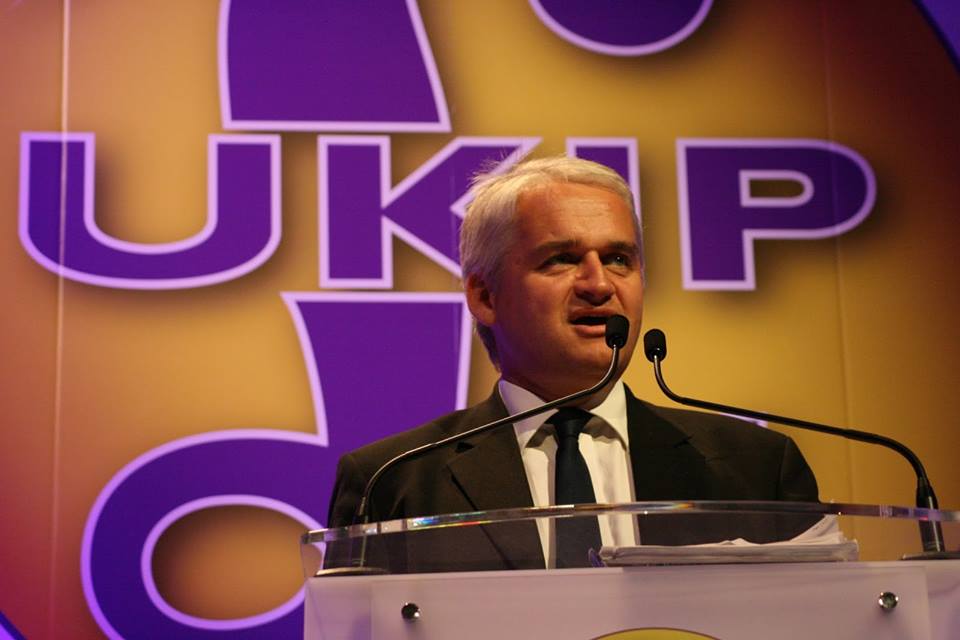After UKIP economics spokesman Patrick O’Flynn unveiled what Ukip sources are dubbing the ‘Theresa May tax’ on luxury goods in a speech today, other senior party members immediately moved to alternately confirm and deny whether the policy would be in the UKIP manifesto for the coming general election.
The confusion began when O’Flynn said: “I propose that this Treasury Commission does something else as well. I want it to investigate the feasibility of imposing a luxury goods rate of VAT… it seems to me that a luxury goods rate of 25 percent could rise substantial extra funds from the wealthiest people. I would suggest such a rate be built around simple thresholds such as £200 for a pair of shoes, £1,000 or a bag or £50,000 for a car.
“That way extra money could be raised for the public realm from the very richest people without dampening incentives for wealth creation in the way that higher income tax rates risk doing.”
A senior party source who asked not to be named told Breitbart London: “what was said in the speech should be taken as policy”, a definate indication it would be in the manifesto.
Despite that, National Executive Member Cllr Tom Bursnall was absolutely adamant it wouldn’t become policy, as he played down the idea as speculation. The top party official said: “Patrick has floated an interesting idea but it’s one that most party members will not agree with. This is not something that will feature in the 2015 manifesto. The difference between UKIP and other parties is that we allow people to express their views.
“What is frustrating is the way the mainstream media can’t cope with ideas and assume everything that is floated is automatcially party policy. Journalists are so used to cynical stage-managed political conferences that they will jump on anything that’s said and obsess about it.
“The fact Patrick has views on a variety of subjects is not news, the real news here is that we are challenging Labour and the Conservatives right across the country.”
The policy would constitute something of a volte-face for Ukip, which up until this summer were proposing a flat rate of income tax on the basis higher earners would still pay more in absolute terms than low earners. That policy was based on sound economic data that proves lower taxes can result in higher revenues for the treasury.
Philip Booth, an economist at the Institute of Economic Affairs told Breitbart London “we last had a luxury tax at the time Britain could not manage its finances and had to obtain a loan from the IMF. This was at the time we had possibly the most left-wing Chancellor of the Exchequer in our history.
“If UKIP wishes to “soak the rich” – in itself a bad policy – this is a bad way to do it. A luxury tax makes it even harder for the less-well-off to obtain things to which they aspire, it distorts the economy and it is not even well targeted. Furthermore, there is no objective definition of a luxury. I cannot think of a single economist who would support a tax on luxuries”.
There is evidence that the changing economic policy is causing factions to open up within the party. Jon Stanley, a libertarian candidate for the NEC, Ukip’s ruling body told Breitbart London “a luxury tax would be unenforceable and is punitive. Our manifesto is at a cross-road between classically socialist and free market ideas, which is giving rise to a document full of inconsistencies that need squaring.”
Others were more forthright, with one Ukip source telling Breitbart London “Patrick is going down a statist route. It’s ill thought out comments on economics that will divide the party. Ukip is libertarian not statist.”
The Ukip constitution clause 2.5 reads “The Party is a democratic, libertarian Party and will espouse policies which: lower the burden of taxation on individuals and businesses”.

COMMENTS
Please let us know if you're having issues with commenting.